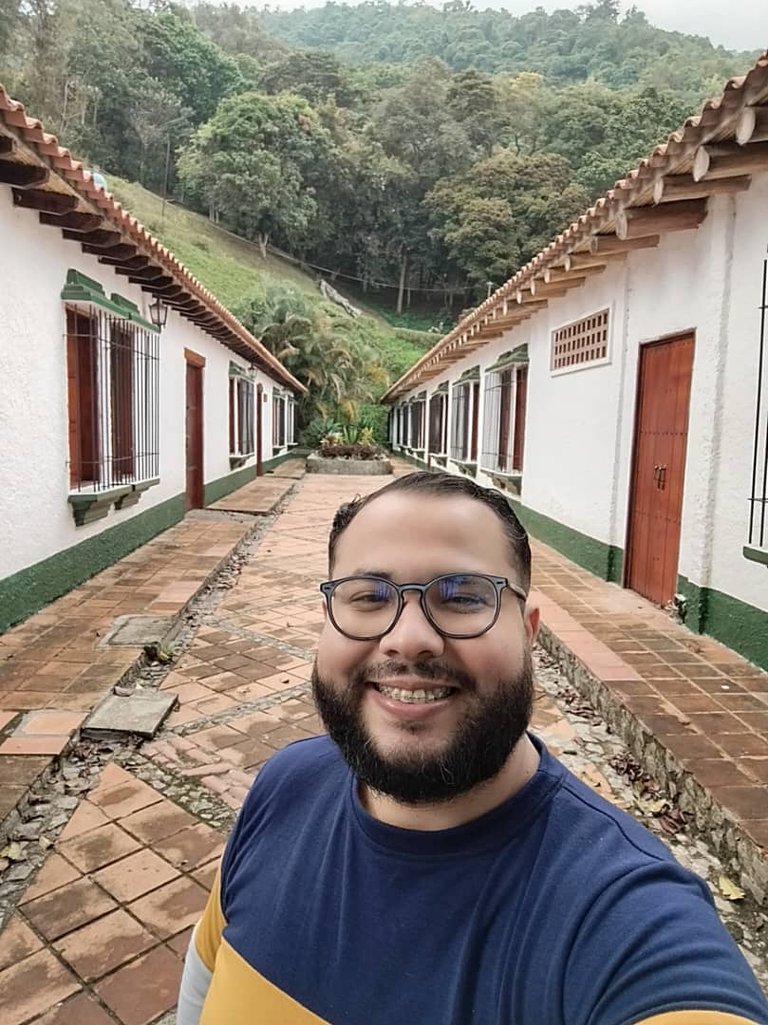
A continuación, desarrollaremos un resumen de la obra de Rousseau acerca del Emilio, exponiendo las principales ideas y apegados al texto, especialmente del libro primero en el cual pretendo centrarme. Encontramos entonces como primer postulado un canto o himno a la tierra, y al mismo tiempo se compone de una alabanza al hacedor, entiéndase esta como de aquel que da origen a lo que hoy tenemos, también desde el inicio empieza resaltando el papel de la madre y su valor fundamental en el área de la educación, hace una comparación de fertilidad entre el hombre y la mujer y llena de loas la figura de la mujer, la hace tierna y la encargada de la primera educación, compara el crecimiento de las plantas por sus cultivos y el de los hombres por la educación. Por otro lado, se reconoce la debilidad del hombre niño, necesitados de fuerza y por ende reconoce la educación como aquello que va a fortalecer a ese niño, asimismo habla de una educación interna que es dada por los hombres y otra externa que es dada por las cosas que nos rodean, de esta manera se crean 3 maestros; la madre, el hombre y las cosas.
Cabe destacar que la educación de las cosas o de la naturaleza es la única que no depende del hombre, y el autor lo resalta dentro de la misma obra, diciendo además que es un arte. Presenta también el problema de la formación de los tres maestros y que en ellos recae hacer ciudadanos u hombres; por otro lado, Rousseau juzga la obra de Aristóteles como una perfecta obra de educación donde surgen las ideas de educación pública y privada, encontrándose esto en la república, que no es como muchos piensan una obra netamente política. Asimismo, establece una vocación universal y no puede ser otra que la de la educación condicionado por el estado de ser hombre y este hombre se va ir educando por aquellas cosas buenas y malas que le ha tocado enfrentar en ese pasar por la condición humana y que la primera instrucción o educación se recibe comenzando a vivir, razón por la que ahora ocupará unas cuantas líneas para hablarle acerca de la vida, especialmente en la etapa de la niñez, recordando los proceso del niño pero también enfatizando que un niño robusto se enferma aun cuando pasa por el proceso común de la enfermedad. Sin embargo, a mi parecer creo que el autor dedica muchas líneas para la reflexión o semejanza del niño con la educación.
Next, we will develop a summary of Rousseau's work about the Emilium, exposing the main ideas and attached to the text, especially the first book on which I intend to focus. We find then as first postulate a song or hymn to the earth, and at the same time it is composed of a praise to the maker, understanding this as the one who gives rise to what we have today, also from the beginning begins highlighting the role of the mother and its fundamental value in the area of education, makes a comparison of fertility between man and woman and full of praise the figure of women, makes her tender and responsible for the first education, compares the growth of plants for their crops and men for education. On the other hand, he recognizes the weakness of the man-child, in need of strength and therefore recognizes education as that which will strengthen that child, he also speaks of an internal education that is given by men and an external one that is given by the things that surround us, in this way three masters are created; the mother, the man and the things.
It is worth noting that the education of things or of nature is the only one that does not depend on man, and the author emphasizes it within the same work, also saying that it is an art. He also presents the problem of the formation of the three teachers and that it is up to them to make citizens or men; on the other hand, Rousseau judges Aristotle's work as a perfect work of education where the ideas of public and private education emerge, this being found in the republic, which is not as many think a purely political work. Likewise, he establishes a universal vocation and it cannot be other than that of education conditioned by the state of being man and this man will be educated by those good and bad things that he has had to face in that passing through the human condition and that the first instruction or education is received beginning to live, reason why now he will occupy a few lines to talk about life, especially in the stage of childhood, remembering the processes of the child but also emphasizing that a robust child gets sick even when he goes through the common process of disease. However, in my opinion, I think the author devotes many lines to the reflection or similarity of the child with education.

En las líneas que siguen del texto de la semejanza del niño, parece también mencionar una crítica a las mujeres, puesto que expresa que el niño pasa de seis a siete años sometido a los caprichos de la mujer he aquí una enseñanza natural de la educación en la que el hombre se ve sometido, además comenta que dentro de los deberes se encuentra como último el ser padre, resalta la importancia de la educación familiar pero que no se vea apegado a los afectos, sino que pueda ser libre en esa relación que debe existir. Menciona la tarea elemental del ser padre y este en su función tiene una triple función y es engendrar o educar hombre para su especie, para la sociedad y para el estado cabe destacar que el autor tiene mucha tenacidad en su escritura puesto que se imponen en sus letras y hace el esfuerzo por valorar su obra ante el lector, colocando entre líneas que no pretende repetir ni dar los mismos ejemplos que otros han hecho, sino que pretender revitalizarlos con su obra.
coloca a su alumno, a su imaginario y de allí parte su reflexión para la construcción de lo que hoy estamos resumiendo, por otro lado, él entiende los deberes del niño como una ciencia que debe ser enseñado y no precisamente por un preceptor, sino más bien por el maestro de ese discípulo; resalta la importancia de la educación para los hombres vulgares, de manera que el lector no comprende el lenguaje soez u obsceno del niño, a propósito de esto Rousseau escribe que Emilio es huérfano, lo desprende de los prejuicios y que en la educación se necesita del temperamento, del buen carácter y no lo coloca como otros autores en estado de condenación para el niño. Posteriormente, el autor quiere dar una visión de unidad en cuanto autoridad y esto lo lleva a creer que el padre y madre deben hacerse uno y que además serían los únicos que representarían una autoridad para el niño, sin embargo, no niega la posibilidad para la nodriza y el preceptor ya que el niño pasaba un tiempo considerable en manos de estos.
In the following lines of the text of the likeness of the child, he also seems to mention a criticism of women, since he expresses that the child spends from six to seven years subjected to the whims of women, here is a natural teaching of education in which man is subjected, he also comments that among the duties is the last one of being a father, he emphasizes the importance of family education but that he should not be attached to the affections, but that he can be free in that relationship that must exist. He mentions the elementary task of being a father and this in his function has a triple function and it is to engender or educate man for his species, for society and for the state. It is worth mentioning that the author has a lot of tenacity in his writing since they are imposed in his letters and he makes the effort to value his work before the reader, placing between the lines that he does not pretend to repeat or give the same examples that others have done, but that he pretends to revitalize them with his work.
On the other hand, he understands the duties of the child as a science that must be taught and not precisely by a preceptor, but rather by the teacher of that disciple; He emphasizes the importance of education for vulgar men, so that the reader does not understand the foul or obscene language of the child, and in this regard Rousseau writes that Emile is an orphan, he detaches him from prejudices and that education requires temperament, good character, and does not place him as other authors do in a state of condemnation for the child. Subsequently, the author wants to give a vision of unity in terms of authority and this leads him to believe that father and mother should become one and that they would be the only ones who would represent an authority for the child, however, he does not deny the possibility for the wet nurse and the tutor since the child spent a considerable time in their hands.

Admite además la vía de educación desde pequeños, no puede un niño salir hombre desde el seno materno, ya que esté no reconocería el mundo de las cosas, es decir, no conocería ni tuviera noción de musicalización y sensación. Una de las cosas que debería evitarse en el transcurso del niño y en su proceso de educación es crearle hábitos, por ejemplo, que pase en un brazo más que en otro, lo que se plantea aquí es una educación desde el inicio en la que el niño no se vea engañado, además comenta que los grandes miedos que se presentan es por la representación de las cosas, es decir, el niño nunca lo ha visto y cuando llega el momento tiene una reacción, en cambio, el hombre de las montañas no teme a animales extraños y esto es logrado precisamente por dos motivos, el primero de ellos es porque vive con ellos y en segundo lugar porque ya ha tenido conocimiento previo de esa clase de animal, se encuentra habituado no así el hombre de la ciudad.
Finalmente, Rousseau plantea una libertad del niño en la cual bajo ninguna presión pueda actuar tranquilamente, bajo términos o banderines de amor al prójimo, manifestada en su obra como aquel hombre que no es miniatura, sino que se educa para ser ciudadano y representante de un estado. Vale la pena destacar la tenacidad del autor al escribir y el mensaje que quiso introducir con su alumno ficticio, asimismo esperamos sea de provecho el resumen para que causando curiosidad se pueda sumergir a la maravillosa obra de Rousseau sobre el Emilio, recordando que aquí solamente presentamos nociones del libro uno.
He also admits the way of education from an early age, a child cannot become a man from the womb, since he would not recognize the world of things, that is to say, he would not know or have any notion of musicality and sensation. One of the things that should be avoided in the course of the child and in his education process is to create habits, for example, to pass in one arm more than in another, what is proposed here is an education from the beginning in which the child is not deceived, he also comments that the great fears that arise is because of the representation of things, ie, the child has never seen it and when the moment arrives he has a reaction, on the other hand, the man of the mountains does not fear strange animals and this is achieved precisely for two reasons, the first one is because he lives with them and secondly because he has already had previous knowledge of that kind of animal, he is used to it, not so the man of the city.
Finally, Rousseau proposes a freedom of the child in which under no pressure he can act calmly, under terms or banners of love for his fellow man, manifested in his work as that man who is not a miniature, but who is educated to be a citizen and representative of a state. It is worth noting the author's tenacity in writing and the message he wanted to introduce with his fictitious pupil, we also hope that the summary will be useful to cause curiosity to dive into the wonderful work of Rousseau on the Emilium, remembering that here we only present notions of book one.

Fuente: Imagen realizada en canva
Traducción al Inglés desde Deepl.com
English translation from Deepl.com